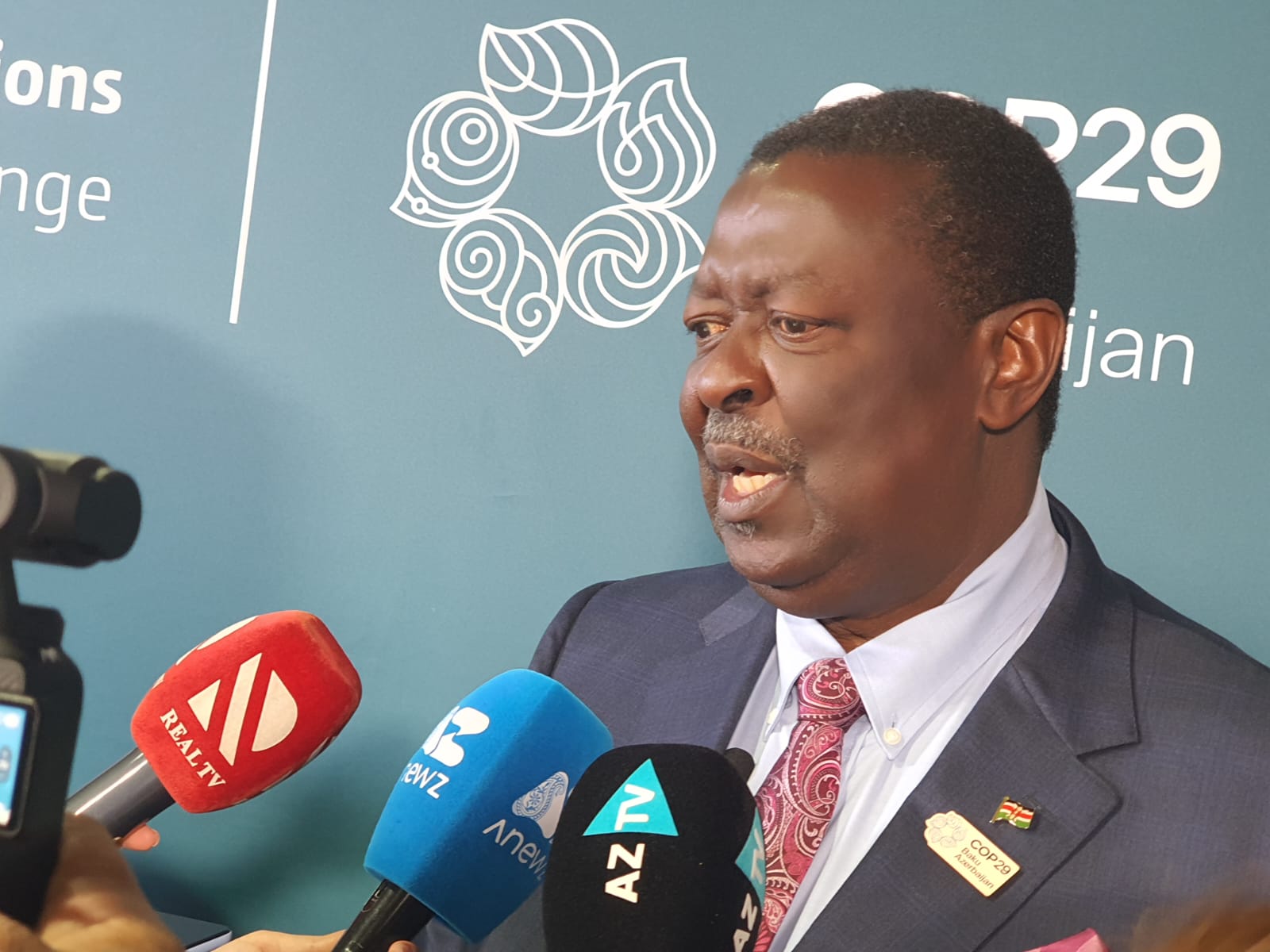

Kenya has revealed why it is pushing to ensure that the global financial architecture towards climate change undergoes urgent reforms.
Prime Cabinet Secretary Musalia Mudavadi said developing countries such as Kenya have a challenge balancing development and addressing the impacts of climate change.
“We already dealing with a lot of public debt through expensive funding. So if you can re-engineer and then have it concession and when I say concessional, that means borrowing at even one per cent or less, and having a longer period of repayment, maybe even 30 to 40 years, so that countries can actually push the Climate Action Agenda without devastating the overall fabric in their countries. So this is going to be very, very important,” Mudavadi said.
Mudavadi is leading Kenya’s delegation to the ongoing climate talks in Azerbaijan. Environment CS Aden Duale and Environment PS Festus Ng’eno are also taking part in the talks.
World leaders and negotiators are in Baku, Azerbaijan, for the United Nations Climate Change Conference, known as the 29th Conference of Parties (COP29).
Kenya is among countries pushing to have more resources to address the impacts of climate change.
African countries want $1.3 trillion annually to meet the realities of climate impacts.
Duale echoed Musalia’s sentiments adding that Kenya needs grants to tackle climate change and not expensive loans. He said Kenya has put in place policies and regulations especially those touching on carbon credits.
He said communities are set to benefit.
“It's in that regulation, it's in law that 40 per cent of any carbon projects will be done in any place in our country. 40 per cent will go to the local community in terms of education, healthcare, making sure what is available,” Duale said.
UN Secretary-General António Guterres urged providers of bilateral and multilateral funds to redouble their efforts, to help cover investment gaps.
“We need to encourage private finance, particularly through public-private partnerships. And we need to simplify access to early warning system finance. And to massively increase the sums available. Increasing the lending capacity of the Multilateral Development Banks is key. The Pact for the Future agreed in September made important strides forward,” he said.









